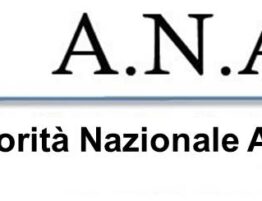
“Social clauses” ‒be they provided by law or by contract‒ impose on contractors the duty to absorb and employ the workers of the outgoing contractor in case of termination of the previous procurement contract, by virtue of the principle of safeguarding occupational stability as set out at Community level (Dir. 2014/24/EU and Dir. 2014/25/EU).
Such duty is also expressly provided for by the Italian legal system and is regulated by different legal sources.
A first reference can be found in the Italian Public Procurement Code (Legislative Decree no 50/2016). Article 50 provides that the calls for tender may include social clauses aimed at promoting occupational stability of the employed staff. Without prejudice to the above, it should be pointed out that recent case law (Consiglio di Stato, Sec. V. 07/06/2016, no. 2433) has stated the principle according to which the new contractor has indeed an obligation to re-absorbe the personnel from the previous contract, but not the obligation to employ it in performance of the same and previous contract.
The obligation in question can also be found both in special regional laws in light of their self-legislative power, and in the sector’s collective bargaining.
On the point Article 25 of regional law No. 25/2007 (as replaced by Article. 30 of regional law 4/2010) of the Puglia Region has provided an actual duty to incorporate similar clauses in calls for tender.
Collective bargaining does not work differently.
In Italy the most used collective agreements for the performance of logistics/storage/warehousing and/or ancillary obligations are the Multiservice CCNL (National Collective Bargaining Agreement) and the Logistics Freight Transport and Shipment CCNL, which are applicable in case of procurement and which provide specific social clauses.
Article 4 provides that:”[…] Upon expiry of a procurement contract two different cases may occur: a) in case of termination of the procurement contract on equal terms, manner and contractual services, the incoming company undertakes to ensure the employment, without trial period, of the workers who are already part of the staff in the procurement, as results from supporting documents […]; b) in case of termination of the procurement contract with modifications to terms, manner and contractual services – even if it is the same that was already managing the service – it will be convened at the local Association to which it gives the mandate […] to analyze the situation, in order to harmonize the changed technical – organizational requirements of the contract with the conservation of the employment levels […].”
Article 42 bis of the Logistics Freight Transport and Shipment CCNL states accordingly that: “in the event of takeover in the contract, the awarding body will inform the trade unions that are competent for this operation with at least 15 days notice.
At the request of the signing and territorially competent Trade Unions, the awarding body will inform in a specific meeting on the issues relating to the takeover, in particular regarding matters related to work organization and safety and the implementation of this CCNL by the incoming company.
The awarding body will include in the procurement contract with the incoming company the latter’s commitment, while respecting entrepreneurial freedom, on equal terms of contract and upon objective operational and productive needs of the incoming company, to give preference, under the same conditions, to the workers employed by the outgoing contractor […]”.
In light of the above, when assessing the economic opportunities of a new contract, the contractor will necessarily have to take into account the existence of this “obligation to employ” and, therefore, consider any possible unprofitability of the contract which is about to be accepted.
The obligation in question is independent from the incoming and/or of the outgoing contractor’s will, with the result that it is always advisable to specifically request the awarding company to provide all information concerning the terminated contract as soon as possible.
(Milan Office – Marcello Giordani – 0039 (0)239680538)








